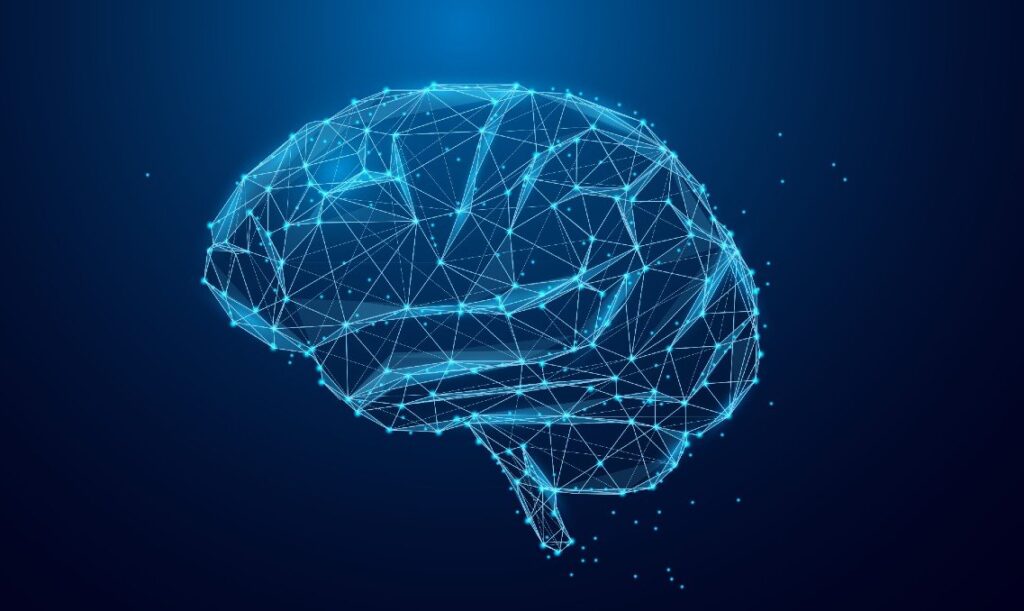December 16, 2024
• Research Highlight
Individuals diagnosed with psychotic disorders, such as schizophrenia, often face significant cognitive challenges, which may include difficulties with attention, concentration, and memory. These cognitive issues frequently manifest as early warning signs that can appear even prior to the full onset of psychosis. A groundbreaking study funded by the National Institute of Mental Health has uncovered consistent connections between brain connectivity and cognitive performance in individuals experiencing early-stage psychosis, as well as in those identified as being at high risk for developing psychosis later on. This pivotal discovery holds the potential to enhance our understanding of the underlying factors that contribute to psychosis, paving the way for earlier interventions and more effective treatment strategies.
Exploring the Focus of the Research Study
The research team, which includes notable experts such as Dr. Heather Burrell Ward from Vanderbilt University Medical Center, Dr. Roscoe Brady, Jr. from Beth Israel Deaconess Medical Center, and Dr. Kathryn Eve Lewandowski from McLean Hospital, undertook a thorough examination of data derived from two significant multisite studies. These studies—the Human Connectome Project for Early Psychosis (HCP-EP) and the North American Prodrome Longitudinal Study 2 (NAPLS2)—enrolled participants who either exhibited early signs of psychosis or were classified as high-risk for future psychotic disorders, along with healthy individuals with no known psychosis risk. This comprehensive analysis aimed to shed light on the neural connections within these groups and their relationship with cognitive performance.
The researchers employed a detailed analysis of participants’ connectome, which refers to the intricate mapping of neural connections, to uncover robust correlations between brain connectivity and attention capabilities. To assess attention, they utilized a specifically designed auditory task that evaluates sustained attention among individuals with, or at risk for, psychotic disorders. This task focused on three critical components of attention: vigilance, memory, and the ability to handle interference from distractions.
In total, the research team analyzed data from 96 participants with early psychosis from the HCP-EP study and 213 individuals at high risk from the NAPLS2 study, aiming to identify patterns and insights that could inform future research and therapeutic practices.
Key Findings from the Research on Psychosis
The findings revealed that participants diagnosed with psychosis or identified as being at higher risk performed significantly worse on attention tasks compared to their peers without such risks. This performance gap underscores the cognitive challenges faced by those affected by psychotic disorders.
Specifically, data analysis from those with early psychosis demonstrated a correlation between their brain connectivity patterns and attention performance, supporting the researchers’ initial hypotheses. Notably, diminished connectivity between a specific area in the medial prefrontal cortex and a region within the somatomotor cortex was linked to poorer outcomes on the attention assessment. Similar connectivity-cognition associations were observed among participants who were at increased risk and eventually went on to develop psychosis.
Interestingly, the data also indicated that no significant associations between connectivity and cognitive performance were found in high-risk participants who did not develop psychosis or among participants who were not classified as being at risk.
Implications of the Study’s Results for Understanding Psychosis
The established connections between brain connectivity and cognitive abilities point to specific neural circuits that may play a role in the cognitive difficulties experienced by individuals with psychotic disorders, even prior to the onset of psychosis. However, it is crucial to note that these findings do not imply a direct causal relationship. The research team suggests that future experimental studies utilizing noninvasive brain stimulation techniques could clarify whether alterations in these neural circuits have a direct impact on cognitive performance. If this hypothesis is confirmed, these circuits could serve as targeted avenues for therapeutic intervention.
Dr. Ward, Dr. Brady, Dr. Lewandowski, and their colleagues emphasize that participant recruitment poses a unique challenge in this area of research, often requiring extensive time, effort, and resources. Given that only a small percentage of individuals at risk for psychosis ultimately progress to a full diagnosis, identifying at-risk participants can be particularly difficult. The researchers assert that the insights gained from large multisite studies like HCP-EP and NAPLS2 are invaluable in enhancing our understanding of the predictive factors associated with the onset and development of psychosis.
Scientific Reference for Further Reading
Ward, H. B., Beermann, A., Xie, J., Yildiz, G., Manzanarez Felix, K., Addington, J., Bearden, C. E., Cadenhead, K., Cannon, T. D., Cornblatt, B., Keshavan, M., Mathalon, D., Perkins, D. O., Seidman, L., Stone, W. S., Tsuang, M. T., Walker, E. F., Woods, S., Coleman, M. J.,…Brady, R. O., Jr. (2024). Robust brain correlates of cognitive performance in psychosis and its prodrome. Biological Psychiatry, 97(2), 139–147. https://doi.org/10.1016/j.biopsych.2024.07.012
Research Funding Acknowledgments
MH066134 , MH066286 , MH120588-01A1 , MH081902 , MH081857 , MH117012 , MH109977 , MH082022 , MH081944 , MH066069 , MH076989 , MH081928 , MH081988 , MH116170










